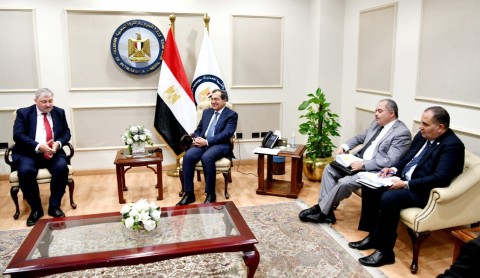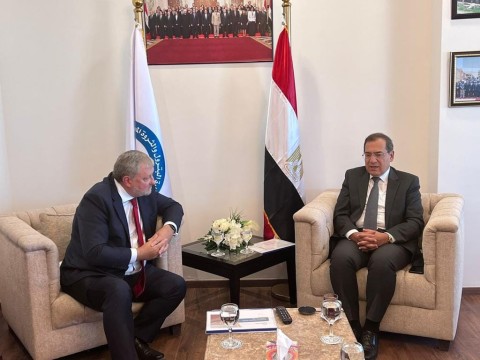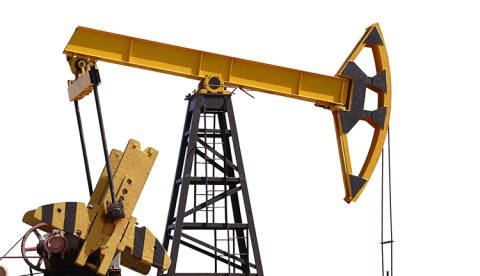TransGlobe Energy Corporation provided a mid-quarter production and operations update for the West Gharib, West Bakr, East Ghazalat and South Alamein blocks during the third quarter of 2011.
During the third quarter, the Company has drilled thirteen wells resulting in twelve oil wells and one dry hole to date in the West Gharib block. The primary focus of the 2011 drilling program has been the development/appraisal of the Arta/East Arta and North Hoshia Nukhul pools where two drilling rigs have been drilling. Eight of the thirteen wells drilled in the third quarter were targeting the Upper Nukhul formation resulting in seven Upper Nukhul oil wells in the Arta/East Arta pools and 1 potential Upper Nukhul oil well in North Hoshia. Two drilling rigs are scheduled to remain in the Arta/East Arta area focused on the Nukhul formation for the balance of 2011.
Four wells were drilled by the third rig resulting in three oil wells and one dry hole in the Hoshia/West Hoshia area. The rig is currently scheduled to drill wells in the Hoshia and West Hoshia area into the fourth quarter.
West Gharib production averaged 11,685 Bopd in July and 10,868 Bopd in August.
Transglobe entered into a Sale and Purchase Agreement (PSA) on March 28, 2011, to acquire all the Egyptian assets of The Egyptian Petroleum Development Co. Ltd. (of Japan) (EPEDECO) for $60 million plus or minus adjustments, effective July 1, 2010 subject to approval from the Egyptian Government. EPEDECO holds a 100% working interest in the West Bakr Production Sharing Concession (PSC).
The West Bakr PSC is located onshore in the western Gulf of Suez rift basin of Egypt adjacent to TransGlobe’s West Gharib Concession and is producing approximately 4,000 Bopd gross (before the production sharing split with the Egyptian Government).
In last July, Transglobe received the governmental approval for the Safwa development lease, with a 20-year term and covers approximately 11,040 acres or 15 development blocks.
In the East Ghazalat Block, the operator has proposed an initial development budget of $2.6 million ($1.3 million to TransGlobe) to complete and equip the existing four wells for production. Processing facilities will be rented for the initial production phase until facility design and construction has been completed. Facility design work is expected to commence following the next drilling phase in 2012. The operator is targeting first production to commence in December 2011. It is expected that the wells will initially be capable of producing 400-600 Bopd per well from the Bahariya formation, which could contribute an additional 800 to 1,200 Bopd of light (34° API) sweet crude to the Company by year-end. Production will initially be trucked to a sales pipeline approximately 95 kilometers north and west of the Safwa field.
Finally, the company entered into a PSA to acquire Cepsa Egypt’s 50% operated working interest in South Alamein for $3.0 million plus an inventory adjustment, effective on and subject to approval from the Egyptian Government.
buy vidalista generic cialisnextdaydeliveryusa.com over the counter
El Paso South Alamein (El Paso SA), a subsidiary of Houston-based El Paso Corporation, holds the remaining 50% interest in the South Alamein PSC. Ancillary to this transaction is an agreement between TransGlobe and El Paso SA on a go-forward appraisal program in exchange for El Paso SA waiving its preferential right under its joint operating agreement with Cepsa Egypt. TransGlobe will assume operatorship of the South Alamein Concession upon closing of this transaction.
The current size of this exploration concession is 2,258 square kilometers. The concession includes an oil discovery well, Boraq-2X, which tested a combined 1,700 Bopd of 38° to 40° API oil from two Cretaceous zones. Initial work by TransGlobe will focus on appraisal and development the Boraq–2X discovery that includes drilling at least two appraisal wells and readying the Boraq–2X well for production. The Boraq-2X discovery is close to existing infrastructure, which should reduce development time and capital.










